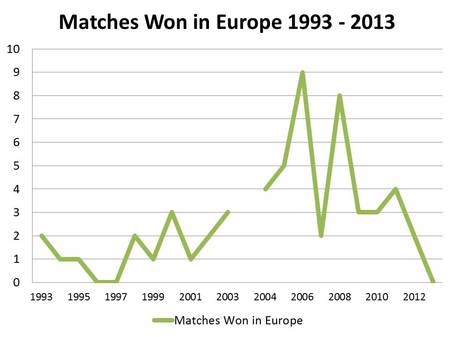
It is now more than a decade since “summer soccer” was first rolled out in the League of Ireland. Since then Dublin City, Galway United, Kildare County, Kilkenny City, Sporting Fingal and Monaghan United have all left the league; Sir Alex has retired as manager of Manchester United and Shamrock Rovers have played in the group stages of the Europa League! A lot has changed.
The rationale for the switch away from the August – May season to a March – November schedule was driven by a number of key factors.
Firstly, given the wet and cold Irish winters, it was likely players would be playing in better conditions and on pitches more suitable to attractive football, as opposed to traditional mucky fields. Coupled with this, fans were more likely to be able to enjoy live football in more suitable conditions. As a season ticket holder at Waterford United said to me one night before the change to summer soccer, “the only thing that would keep you awake, when watching the Blues, is the cold”. The final driver behind the switch was a fitness factor related to Irish involvement in European competitions. European competition for Irish teams starts in July. This would now be mid-season following the switch, but pre-season for the majority of other European clubs. There was therefore now a better chance of reaching the Holy Grail – the group stages of the Champions League.
Now that summer soccer is a decade old, I thought it best to consider if the switch has had a positive impact on results in Europe for League of Ireland clubs. The stats appear to be positive.

The graph displayed plots games won in Europe by Irish teams since 1993. The high water mark achieved in the summer of 2006 is thanks to the performances of Cork City, Derry City, Drogheda United and Shelbourne, who all managed to win at least one game in the Champions League, UEFA Cup and Intertoto Cup respectively. The only worry is the performance this season. 1997 was the last time we failed to win a game in any European competition. Hopefully, this is just a bump in the road of continued European improvement.

 RSS Feed
RSS Feed